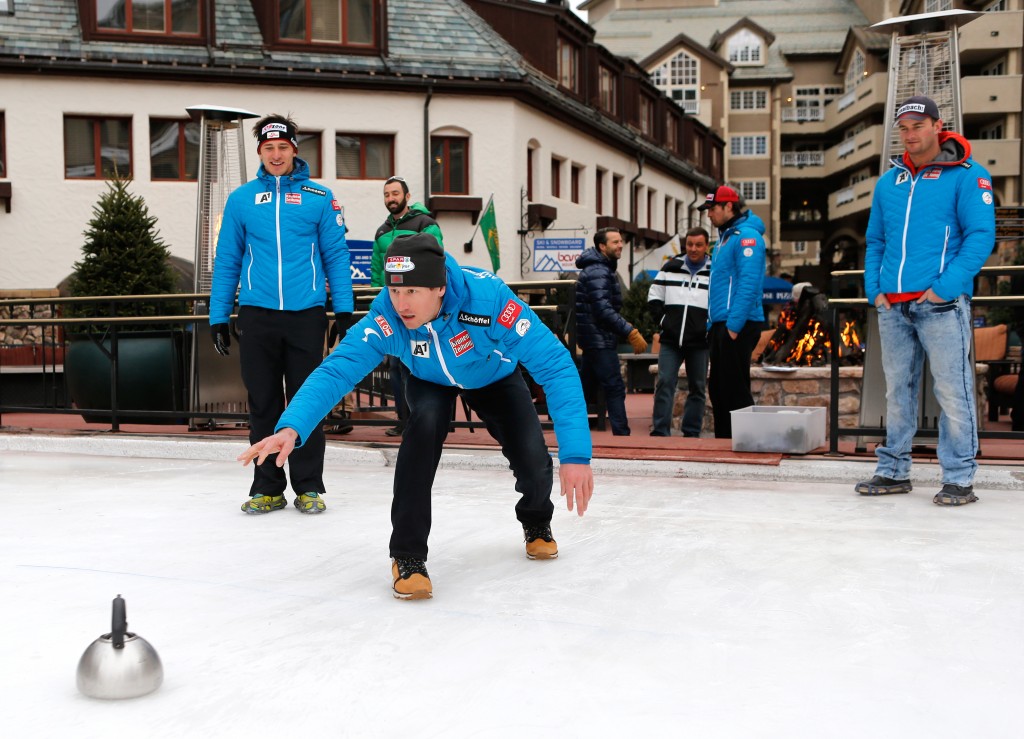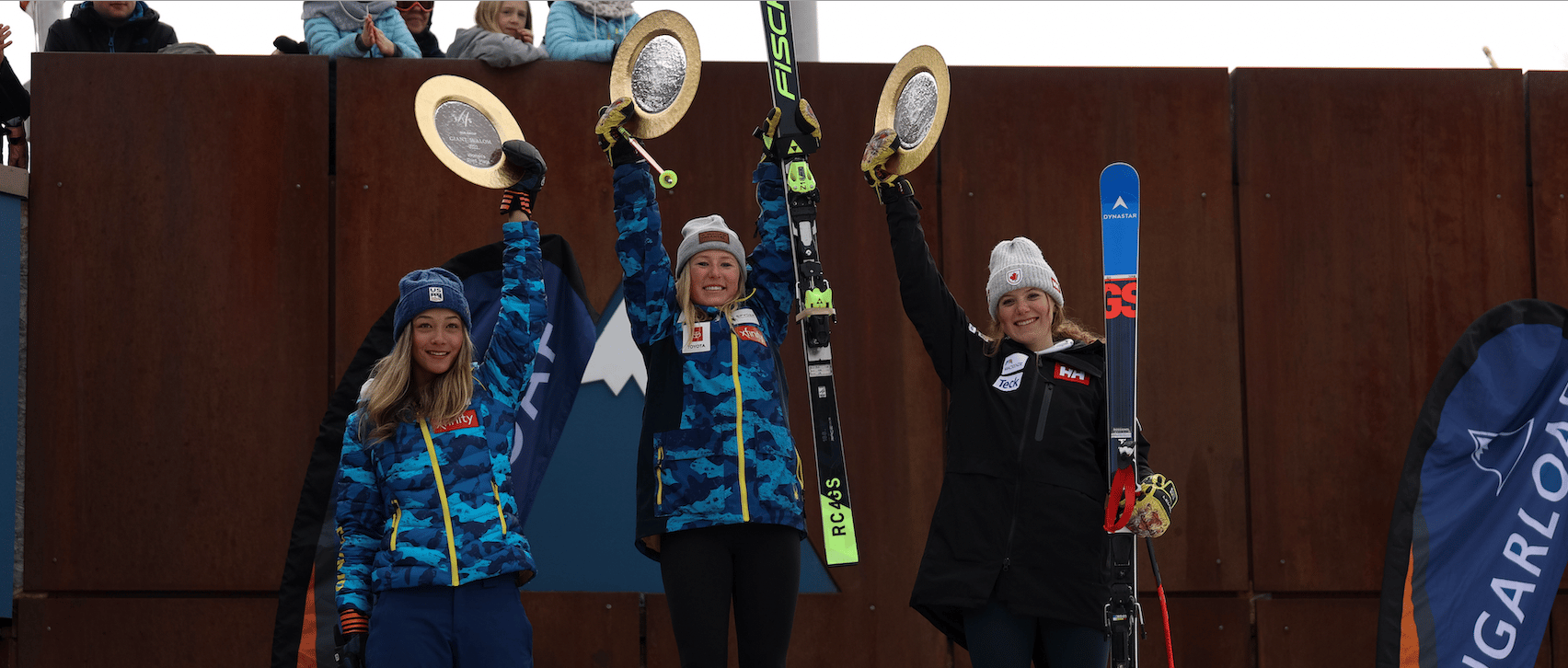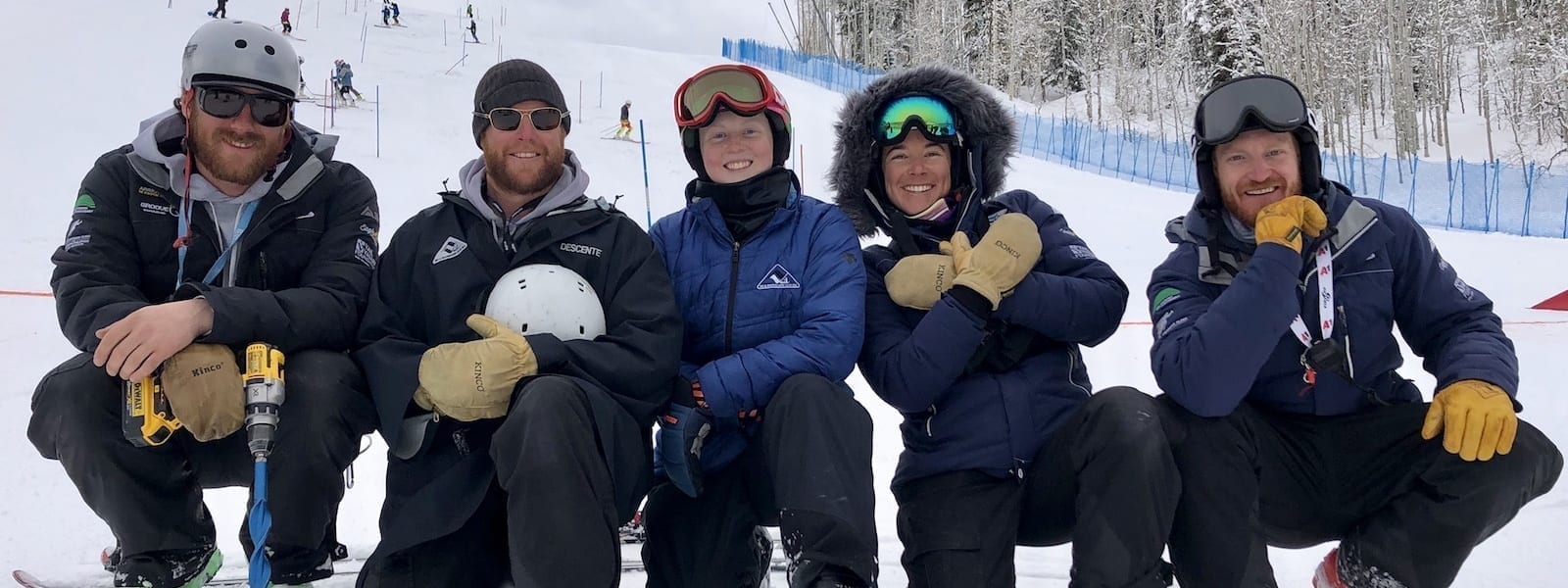Bust out pow skis: Second Beaver Creek training run nixed

The Austrian men’s team went curling when the first training run was cancelled (GEPA/Wolfgang Grebien)
To no one’s surprise, the second of three scheduled downhill training runs for the men at Beaver Creek was cancelled as Winter Storm Cleon dropped six inches of snow on the hybrid course, being called BOPtor in the press room. Work crews were unable to keep up with the snowfall and officials cancelled the training run. The first training run, originally set for Tuesday, was cancelled because many teams could not get out of Calgary after a week of training and racing in Lake Louise, Alberta.
Regulations say a World Cup downhill can be held with just a single training run. The schedule had already been changed to have the downhill Friday, the super G Saturday and a giant slalom Sunday. Should continued snow, as is forecast, prevent a training run on Thursday, something will have to give and Beaver Creek is likely to lose one of the races. Another 12 to 24 inches of snow is forecast.
The race had been slated for the BOPtor course as the early preparation required for last weekend’s women’s races on the newly opened Raptor course made it impossible to also prepare the full length of the traditional Birds of Prey course. Both tracks are scheduled to be used at the 2015 World Championships next February. It was imperative the women get a chance to ski the new course, whereas the men have skied the Birds of Prey on an annual basis since 1997.





















